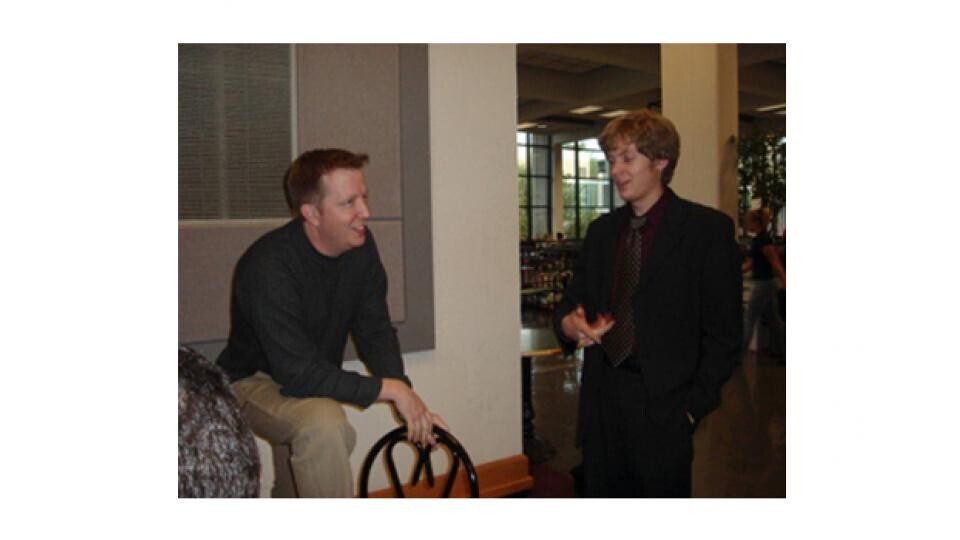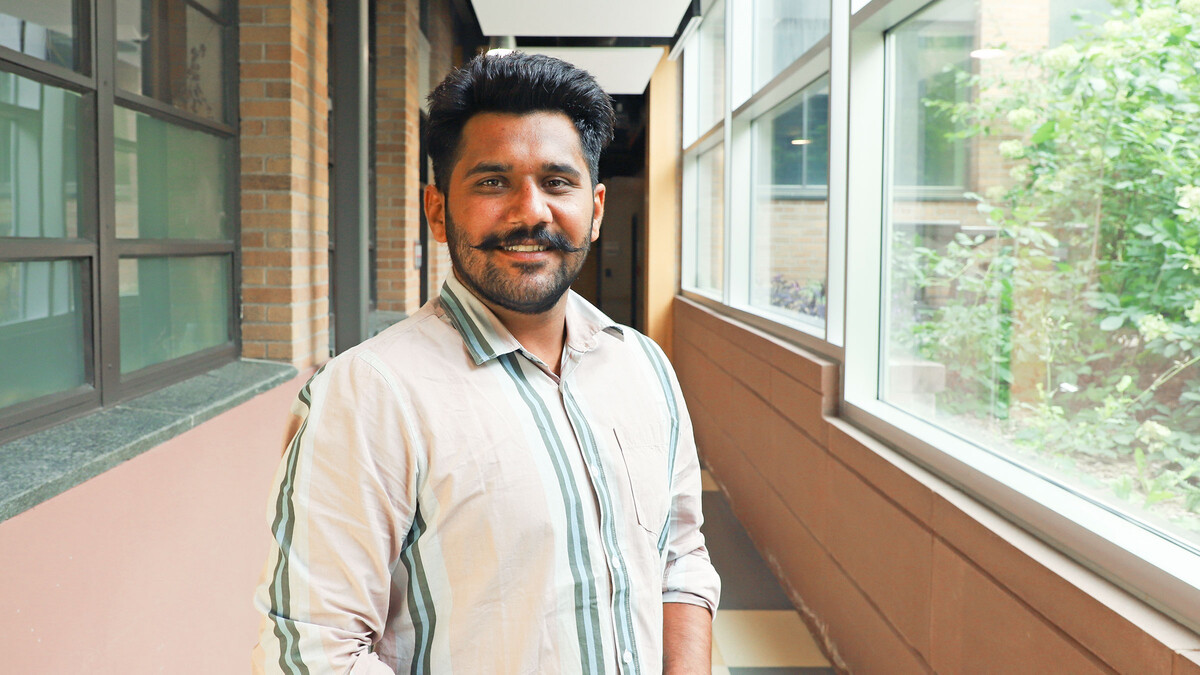
With thousands of professional gamblers converging in Las Vegas this week for a chance at a $10 million jackpot in the World Series of Poker, UNL researcher Aaron Duncan says Americans’ love of poker is one unmistakable “tell” about the shifting American dream.
Duncan, director of the speech and debate program, holds a doctorate in communication studies specializing in the study of sports rhetoric and cultural mythology. He is the author of an upcoming book, to be published in 2015, tentatively titled “Gambling with the Myth of the American Dream.”
“The ability of professional poker players to understand, tolerate and manage risk makes them role models for entrepreneurs in a system where those skills are vital to economic success and survival,” Duncan said. “Poker is, after all, the most capitalistic of card games.”
In a research article published last year in the Western Journal of Communication, Duncan analyzed the out-of-nowhere victory of Chris Moneymaker, then a 28-year-old accountant and amateur poker player, in the 2003 World Series of Poker. In the article, Duncan also studied ESPN’s sports-style coverage of the tournament and how it shaped the narrative of Moneymaker’s win.
“The story of Moneymaker’s victory is more than just a story of an amateur player who got lucky and won,” Duncan said. “His story is rooted in the larger story of the self-made man and is imbued with mythic elements that allowed his victory to resonate with the larger culture outside of poker.”
Myths are the stories a culture uses to establish group identity and purpose. The “self-made man” – the concept that any person can be successful through hard work, virtue and talent –is rooted in America’s Puritan heritage and continues to shape American thought.
Duncan said he believes the popularity of poker signals a changing American culture that is increasingly accepting of risk and focused on acquiring wealth. Moneymaker’s story replaces the Protestant work ethic with a desire for quick gains; social and individual virtue are replaced by a warlike mentality that encourages deception and misinformation. Success depends upon luck.
What remains of the myth is its sense of democracy and meritocracy. Everyone starts with the same amount of chips. With luck and skill, anyone can win. As ESPN play-by-play announcer Lon McCarron said of Moneymaker at the time: “He proved that anyone, truly anyone, can be the next world champion of poker.”
Poker did not cause these changes to the American dream, Duncan said. Indeed, its popularity reflects larger changes in American culture and what modern scholars have come to term as “the risk society.” From worries about the stock market, mortgages and job layoffs to foreign wars, global warming and terrorism, contemporary American culture is dominated by the discussion of risk.
“If we exist in a risk-based society, then what better way is there to understand it than through the game of poker?” Duncan asked rhetorically, “After all, poker is a game where success depends upon an understanding and balancing of risk. The modern condition is not just about the creation of risk but also the tolerance and management of it.”
Yet a poker-based economy contains troubling aspects. Poker players have no bosses, but they produce no goods or services and have no customers or clients.
“Poker players learn and exercise a skill that allows them to profit while producing nothing,” Duncan said. “This system allows successful poker players like Moneymaker, Daniel Negreanu and Doyle Brunson to opt out of the traditional economic market.
“Their attempts at maximizing profits through the management of risk without the creation of a discernable product is not unlike that of the day trader, a hedge fund manager, or the Wall Street financiers,” he said. “The only goal of these new risk-based professions is the pursuit of wealth, but the acquisition of wealth always comes at the cost of someone else. After all, a game of poker does not serve to create new wealth, it only serves to redistribute it.”







